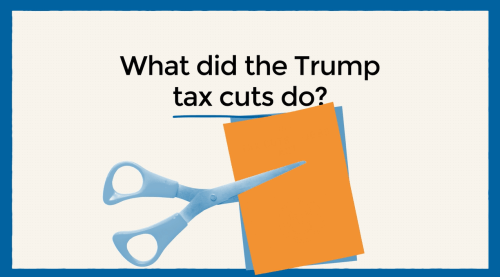The Princeton economist Alan Blinder once observed that “economists have the least influence on policy where they know the most and are most agreed.” We hope he will be proven wrong about one policy enacted in 2017: the special deduction for qualified business income. This provision, which economists are nearly united against, is a major part of the mammoth tax and spending bill currently winding its way through the House.
The “Section 199A deduction” allows owners of certain pass-through businesses—such as partnerships, sole proprietorships, and limited liability corporations—to shield 20 percent of their net business income from tax. Lawmakers pitched it as a tax break for small business, but many large firms and high-income professionals benefit from the deduction. Republicans in Congress not only want to permanently extend the rule – which expires at the end of this year under current law – but also to double down, raising the deduction to 23 percent and expanding the number and types of business covered.
In 2024, the Peterson Foundation asked economists in seven think tanks across the political spectrum to come up with tax reform plans. All seven proposed eliminating the deduction. Why? Put simply, the rule has proven to be expensive, regressive, complicated, ineffective in promoting investment, and unfair to wage earners. Let’s take those in turn.
Expensive: According to the nonpartisan Joint Committee on Taxation (JCT), the deduction was estimated to cost $414.5 billion between 2018 and 2027. In practice it has been even more expensive, as taxpayers have shifted income into pass-through form to take advantage of the deduction. Extending it would cost over $700 billion over the next 10 years, and the other proposed changes would cost another $100 billion or more.
Regressive: The benefits are highly skewed to the affluent. The JCT found that 44 percent of the tax benefits would go to taxpayers with annual incomes above $1 million. A Tax Policy Center study found that 55 percent of the tax benefits in 2019 went to households in the top 1 percent of the income distribution, and more than 26 percent went to just the top 0.1 percent.
Complicated: The deduction is notoriously complex and encourages tax-driven income shifting rather than economic growth. Its value, phase-ins, and eligibility criteria vary depending on industry, income level, and even taxpayers’ professions. Small business owners must overcome onerous administrative burdens to claim it.
Ineffective: The stated rationale for enacting the deduction was to create jobs and raise investment. But research shows the deduction did neither. One paper found “little evidence of changes in real economic activity,” including investment, employee wages, or job growth, while another found that 199A led to zero change in employment.
Unfair: A fundamental principle of an income tax is that two different people with the same income and same economic situation (both married, both have children, etc.) should pay the same tax. But the 199A deduction arbitrarily favors business income over wages, encouraging taxpayers who have the means to relabel their income to avoid paying taxes.
The changes considered by the House would make these problems worse. Along with a higher rate for the deduction, it would be offered to more owners of “specified service trades of businesses” like doctors, lawyers, and consultants. It would also provide a $10 billion tax break to Business Development Companies, a type of investment vehicle typically managed by private equity firms. These changes would increase the regressivity of the deduction and expand this complicated and inequitable provision to more parts of the economy.
If Congress wants to support small businesses in an effective and evidence-backed way, it has plenty of good options. They range from supporting sector-based training and workforce development to expanding access to small business credit and seed funding.
There are even ways to structure support as a tax break while improving its fairness. To reduce its cost and make it less regressive, Congress could cap the amount owners can claim (to prevent the largest passthrough business owners from receiving massive tax cuts) or change the structure of 199A to cover a fixed amount of qualifying business income (rather than 20 percent). A version of the structural change even wins support from a majority of small business owners.
As it currently stands, however, economists agree that 199A is expensive, complicated, and fails to accomplish its goals. Congress should not extend the deduction, and it certainly should not expand it.
The Brookings Institution is committed to quality, independence, and impact.
We are supported by a diverse array of funders. In line with our values and policies, each Brookings publication represents the sole views of its author(s).








Commentary
For once, economists agree: Extending Section 199A is a bad idea
May 20, 2025